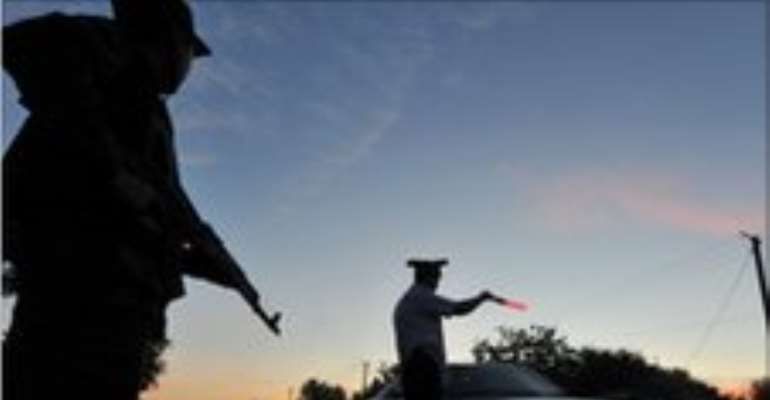KYRGYZSTAN HOLDS REFERENDUM AFTER ETHNIC CLASHES

Kyrgyzstan is holding a referendum on a new constitution amid fears it could inflame ethnic tensions.
The proposed constitution would give parliament more power and set the stage for a general election in September.
Several hundred people died in clashes between ethnic Kyrgyz and Uzbeks in the south of the country earlier in June.
The interim government called Sunday's referendum after President Kurmanbek Bakiyev was overthrown in April.
Polls opened at 0800 (0200 GMT) and will close at 2000 (1400G GMT), with results expected on Monday.
The BBC's Tom Esslemont in the Kyrgyz capital, Bishkek, says the conditions for holding a referendum are far from perfect.
Health officials say 275 people were killed in the clashes, but other officials put the number of deaths at 2,000.
Thousands of homes and businesses were destroyed and an estimated 400,000 people – many of them from the minority ethnic Uzbek community – were displaced.
Interim leader Roza Otunbayeva said the new constitution would give her government more legitimacy.
Speaking as she cast her vote in the southern city of Osh – where the violence started – she said: “As a people, we want to heal the wounds we have sustained in recent times.”
The curfew in the city, the second-largest in Kyrgyzstan, has been lifted for the vote.
Blame
The referendum is supported by the UN, the US and Russia, as a step towards restoring democracy.
If the constitution is approved, Kyrgyzstan will become a parliamentary republic, with more power given to the prime minister.
Ms Otunbayeva would remain interim president until the end of 2011, before stepping aside.
Parliamentary elections would be held every five years and the president limited to a single six-year term.
But opposition parties and some human rights groups have criticised the vote, saying it is happening too soon after the ethnic clashes in Osh and neighbouring Jalalabad.
The violence has abated but the country's Uzbek and Kyrgyz populations remain deeply divided.
The New York-based organisation Human Rights Watch said in a statement: “The situation in the south remains extremely tense and unpredictable, with ethnic Kyrgyz and Uzbek residents having largely retreated into ethnically near-homogenous areas.”
Each side blames the other for the violence.
The provisional government said it had been started deliberately by allies of the deposed president in an effort to stop the referendum from going ahead.
Ethnic Uzbeks accuse Kyrgyz soldiers and policemen of taking part in attacks on their neighbourhoods in Osh – many of which have been destroyed.
Mr Bakiyev, who is in exile in Belarus, has rejected the allegations.
